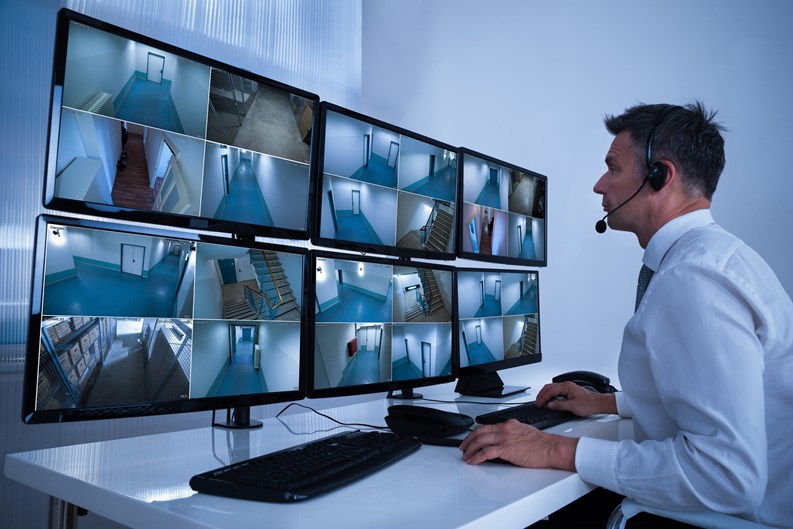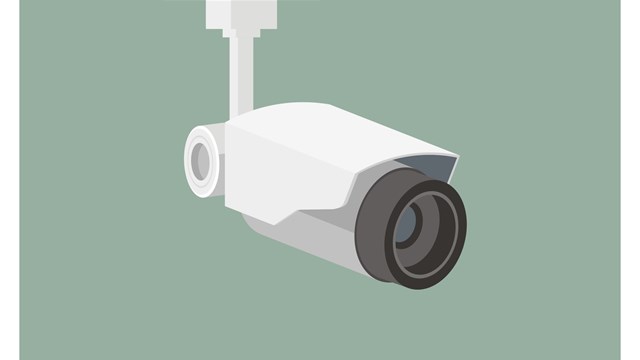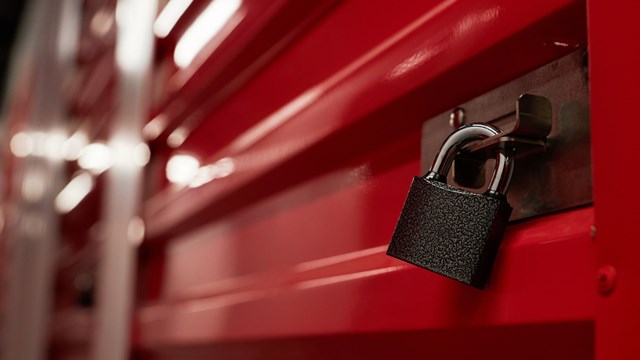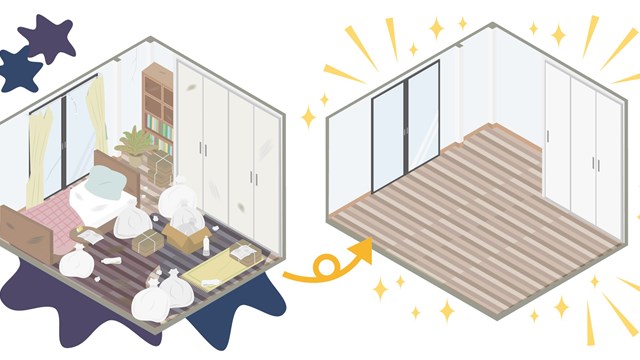In 2017, a Boston couple were brutally murdered in their penthouse apartment in a high-end condominium building. The murderer, the former employee of a company that supplied concierge services to the condo, had worked there, and so knew the ins and outs of the building—including some serious gaps in the property’s security that both the board and manager were aware of, but had done nothing to address.
For example, the building’s private garage was easily accessible by non-residents - so much so that there had been multiple break-ins prior to the murders. From the garage, one could easily get into the building’s elevator and onto the residential floors. The couple’s penthouse was the only unit on its floor, with the elevator opening directly into the unit. The elevator door required a key, but there was a loophole: if you got off one floor below, you could simply walk up a staircase to the penthouse. Unit owners—including the victims—had made the board and management aware of these security issues, but no action was taken to address them. In the end, two people lost their lives as a result.
Who is Responsible?
“Boards have a fiduciary duty of care to their constituents,” explains William McCracken, a partner with Ganfer Shore Leeds & Zauderer, a law firm based in Manhattan. “I would not extend that to an obligation to ensure that residents and property are safe, because nothing in this world is guaranteed. But they do have an obligation to take reasonable steps to protect residents and their property. Residents want to feel that the building takes their safety seriously, and prospective buyers don’t want to live in a building seen as unsafe. Security cameras are a pretty standard tool for that purpose, at least at important access points.”
The court’s decision in Field vs. Highbridge Condominium et. al., the legal case that resulted from the tragedy in that Boston building, held that “A condominium association bears a duty to exercise due care for residents’ safety in those areas under the association’s control.” “Common areas,” in other words, explains Matthew Gaines, a partner with Marcus, Errico, Emmer, and Brooks, located in Braintree, Massachusetts. “While condo associations are not expected to hire armed guards, the court provided clarity when it stated that on the one hand the board is not a guarantor of safety, but at the same time can’t ignore reasonably foreseeable risks of harm by intrusions into common areas. The takeaway is that if the board or manager knows of a flaw in security, they must act—not hide their head in sand.”
Security Cameras
In an age where almost everyone and everything everywhere is digitally recorded in some way or another, one useful security tool for condominium and co-op boards to consider—even in buildings with security staff—is digital camera equipment. Placed responsibly throughout a property, security cameras can provide both deterrence and a record of any misdeeds they catch. They are easily monitored from both within the building and from remote locations, depending on the needs of the community, and the images can be preserved, retrieved, and shared whenever necessary.
“If the governing documents don’t dictate otherwise,” says McCracken, “a board may—at least in theory—install cameras in all common areas. As a practical matter, there are many constraints on a board doing so, from concerns about resident privacy to the sheer cost of maintaining such a system.”
And while “the use of security cameras raises a lot of interesting philosophical and theoretical issues,” around privacy and surveillance, continues McCracken, “In my experience, the issues that come up with cameras are fairly mundane—should we buy one more camera for the laundry room? Should we upgrade our package to store rolling footage for an additional week? I have not seen boards with the discretionary income or the inclination to set up a pervasive surveillance state in their buildings.”
How Long Should Recordings Be Preserved?
“There’s no requirement to save recordings,” says Gaines. “It’s up to the board, and it also depends on the sophistication of the system. The more recording time the system saves, the more memory you need. Some systems overwrite after say, 30 days. How long do you realistically need to keep the recordings? That choice might be anywhere from 30 days to six months. We suggest that our clients consult their tech professional before deciding. Under Massachusetts law, owners have a right to access and read the records of condominium associations; that’s usually board minutes and financial information. Current regulations don’t include video and surveillance recordings. A board is not obligated to provide this information to residents, but they might have to give it to the police, if asked. Base this on logic and common sense; if a board gets a letter from an owner or attorney to preserve recordings for a case of damage to a car, for instance, they should keep it.”
“In the absence of any obligation in the governing documents, this is a function of cost and capacity,” adds McCracken. “Most buildings don’t keep footage for more than a few weeks, much less indefinitely. Rather, the tape gets continuously overwritten unless it’s manually saved, because doing otherwise would get too expensive and impractical. Generally, this footage is only available to management and the board, but can be shared as the board sees fit.”
Keeping or Peeping?
The introduction of cameras into any living environment must be done with care and respect for the privacy of individual residents. That means letting anyone who may be affected know well in advance that cameras are being installed. If building administrators fail to do so,“A resident could, in theory, bring a legal case for an invasion of privacy,” says McCracken, “but as a practical matter, the tools of democracy are probably more effective—if a board is overdoing building surveillance, [residents can] vote them out, or amend the governing documents to take that power away from them.’
Gaines agrees. “When cameras are installed,” he says, “the board should make it clear that that is the case. Send a note out to the owners and say this has been done. Specify whether the cameras are monitored, and which—if any—are surveillance cameras. Most of the time cameras are not monitored 24/7, except in high-end buildings. There aren’t any rules in the state of Massachusetts as to where cameras can be placed; you can’t have cameras in locker rooms and similar spots, but they’re permitted by the pool itself—much the same way cell phones are.”
Alessandra Stivelman, Esq., partner at the Hollywood law firm of Eisinger Law, says, “Since cameras are becoming more affordable, they are naturally becoming more prevalent in community associations. However, there are many laws, both state and federal, that may impact the association’s authority to install cameras in the common elements of a condominium and record audio therefrom. In addition, the association’s governing documents may also impact the board’s authority to install security cameras.
“First and foremost,” Stivelman continues, “the association may not have had the authority to install cameras in the common elements if the cameras that were installed are deemed a material alteration to the association’s common elements. In Florida, the Condominium Act prohibits certain material alterations or improvements to the common elements without either the approval required in the association’s declaration or, if the declaration is silent, the statute requires approval of at least 75% of the voting interests. Older arbitration cases have found that the addition of cameras and supporting apparatus constitute a material alteration to the common elements requiring compliance with applicable law. However, newer cases have deemed the installation of certain cameras not to be material in nature. These determinations are made on a case by case basis.
Another question is what to do in the event a camera captures illegal activities. “If it’s a police matter,” says McCracken, “they will ask for, or subpoena the footage. Management usually has a protocol for preserving footage it is instructed to preserve.” Another concern is what happens if a camera stops working at an inopportune moment and misses something important to a subsequent inquiry or investigation. “That’s unlucky,” says McCracken. “But on the other hand, if a board has ignored a lot of warnings that a camera wasn’t working —that’s negligent. Even then, however, I would have to be convinced that the board owed anyone a duty to keep the cameras running unless they had expressly promised to do so.”
McCracken adds that another interesting question is how building or association management should handle a resident who uses, say, a doorbell camera to observe the comings and goings of their neighbors. “They may claim it’s for their own safety,” he says, “but how does a board balance that with the neighbors’ concerns over being surveilled by a private individual?”
Security cameras have been around in one form or another for a long time. Those available today are more efficient and of better quality than at any time in the past. Unquestionably, they provide a level of surveillance and security that is both comforting and useful. But security systems of any kind are only as good as the people using them, and only helpful if people trust them in the first place. Community members are entitled to personal privacy, but also to a basic level of safety and security within their homes. Properly-used security cameras and other surveillance as part of an intelligent, well-maintained security system in any building can help prevent the types of terrible tragedies described at the beginning of this article.
A J Sidransky is a staff writer/reporter for CooperatorNews, and a published novelist.
He may be reached at alan@yrinc.com.










2 Comments
Leave a Comment